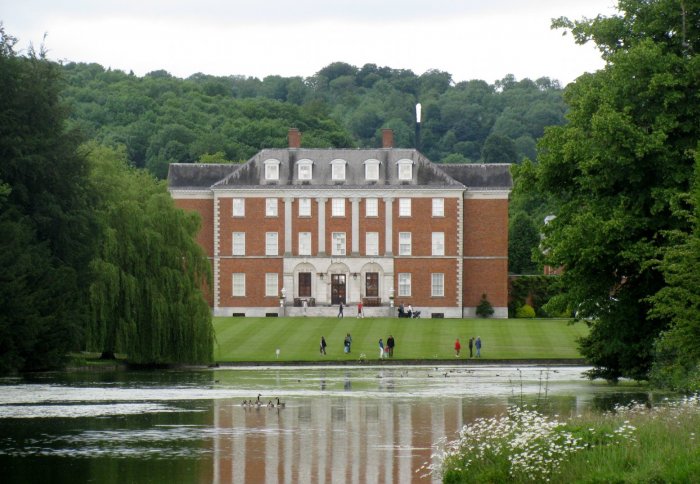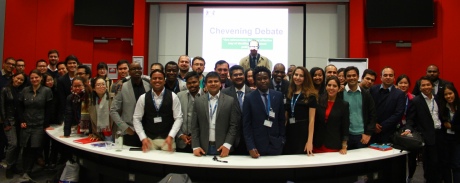International scholars debate effectiveness of referendums at Imperial

Chevening House
Chevening scholars from across the UK gathered at Imperial to consider the use of referendums in deciding government policy.
With the UK’s referendum on Britain’s membership of the European Union drawing closer, I am pleased we can bring together so many bright minds discuss such an important issue
– Dr Anne Wozencraft
Head of International Relations
Chevening is the UK government’s international awards scheme aimed at developing global leaders. Funded by the Foreign and Commonwealth Office and partner organisations, the recipients of Chevening scholarships are personally selected by British Embassies and High Commissions throughout the world.
Imperial boasts 27 Chevening scholars from 17 countries around the world.
The debate opened with a plenary lecture from referendum expert Dr Matt Qvortrup, Chair of Applied Political Science at Coventry University, who invited six scholars from universities across the UK to debate the motion: “Are referendums the most effective way of deciding government policy”.
Power to the people?
On the supporting team, scholars argued that referendums create political space for people to express their views, enhancing the democratic process and encouraging voter awareness of issues affecting them. They said that referendums also lend legitimacy to government policies.
 The second team countered that elected representatives with the relevant expertise should make important decisions on our behalf. They noted that referendums can be used to oppress minority groups, whose voice wouldn’t be heard in a popular vote, and that the outcomes of referendums have more to do with which side spends the most money on a campaign, rather than what the public think.
The second team countered that elected representatives with the relevant expertise should make important decisions on our behalf. They noted that referendums can be used to oppress minority groups, whose voice wouldn’t be heard in a popular vote, and that the outcomes of referendums have more to do with which side spends the most money on a campaign, rather than what the public think.
At the end of the evening, a close vote suggested more scholars in the audience sided with the second team's arguments.
Dr Anne Wozencraft, Head of International Relations at Imperial, said: “Imperial’s mission is to achieve excellence in research and education for the benefit of society. Global collaboration is absolutely crucial to achieving this. Our campus is a diverse, international place – we welcome students from all over the world, including many funded through the Chevening programme.
“With the UK’s referendum on Britain’s membership of the European Union drawing closer, I am pleased we can bring together so many bright minds to discuss such an important issue.”
Article text (excluding photos or graphics) © Imperial College London.
Photos and graphics subject to third party copyright used with permission or © Imperial College London.
Reporter
Deborah Evanson
Communications Division